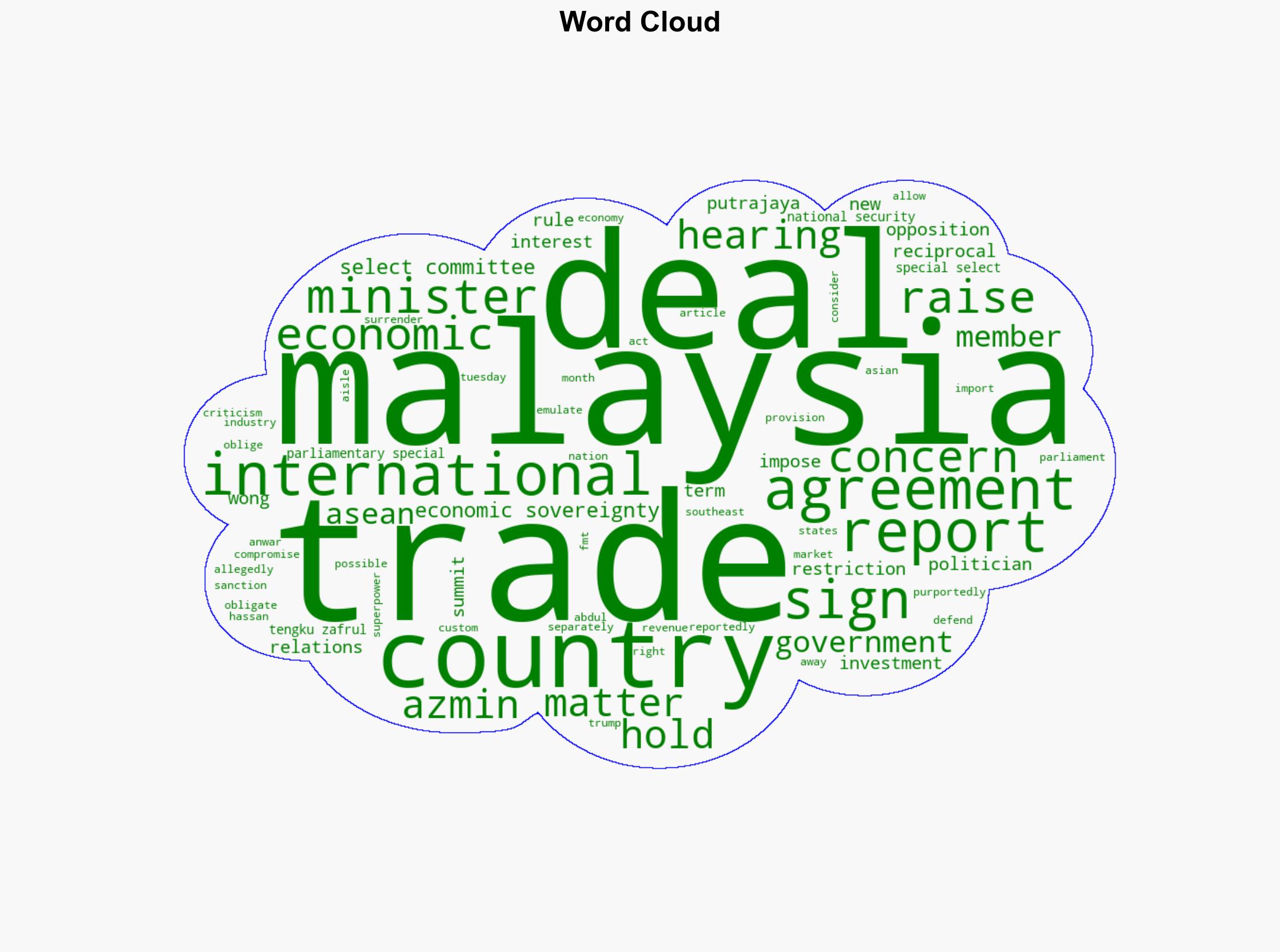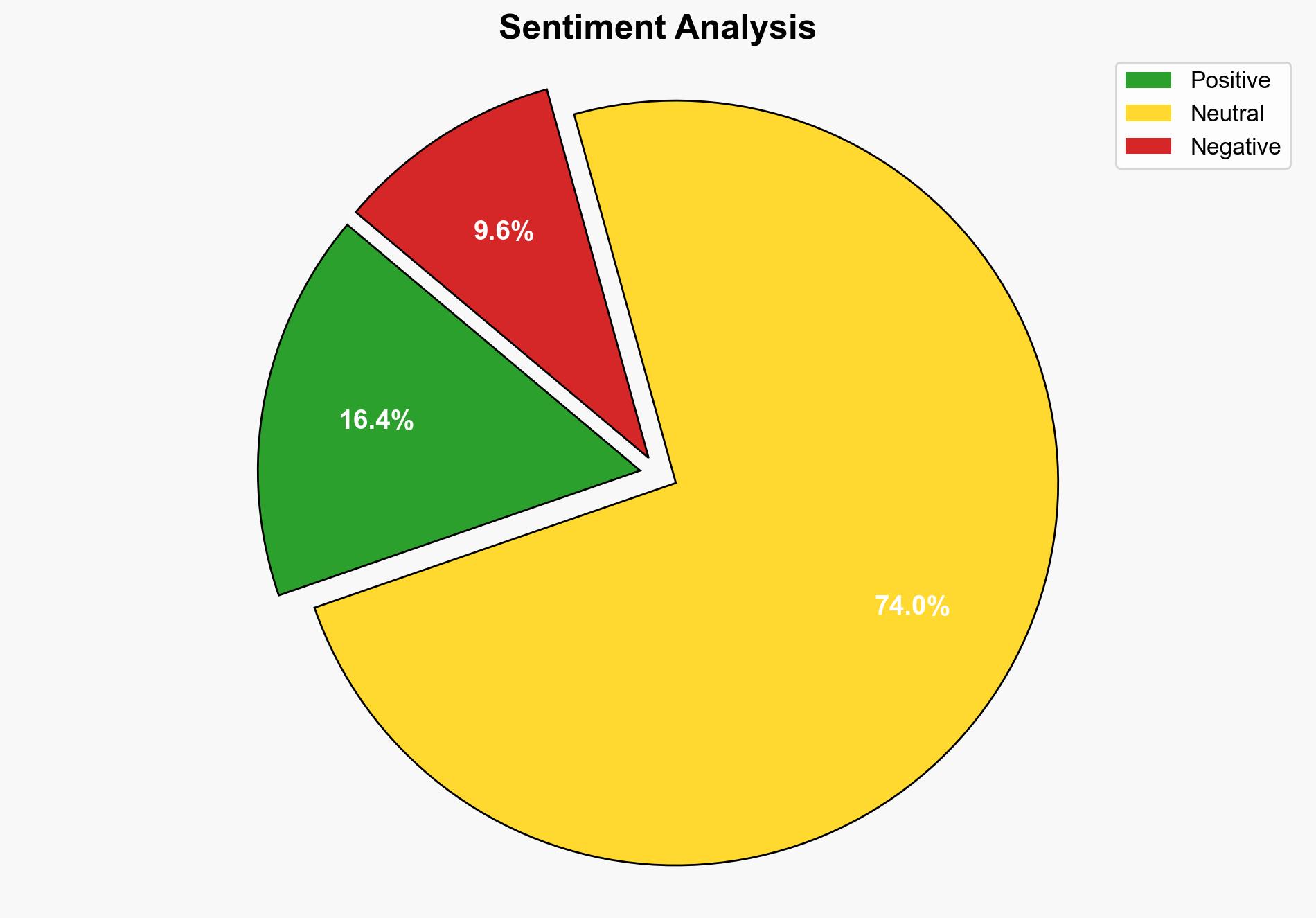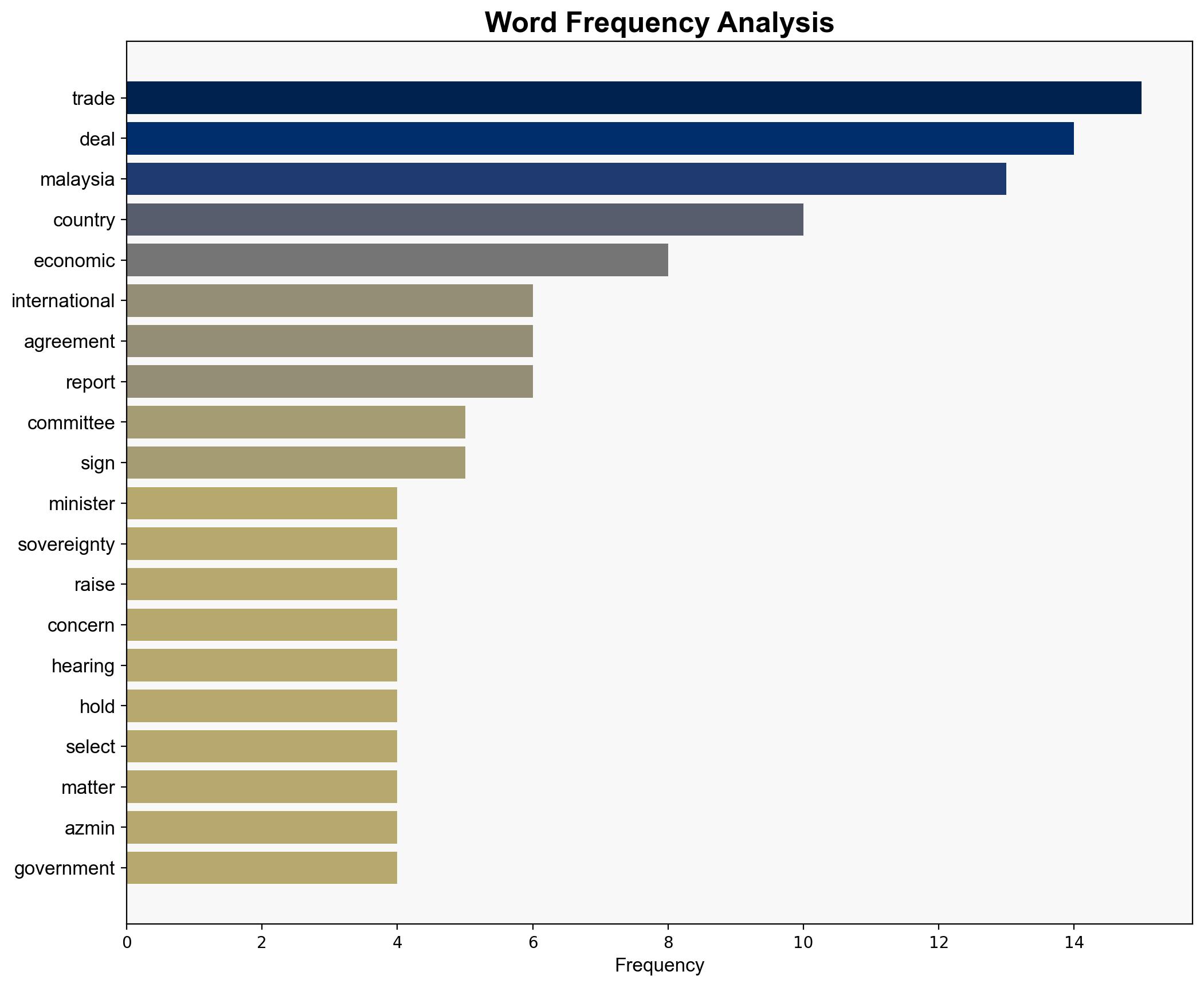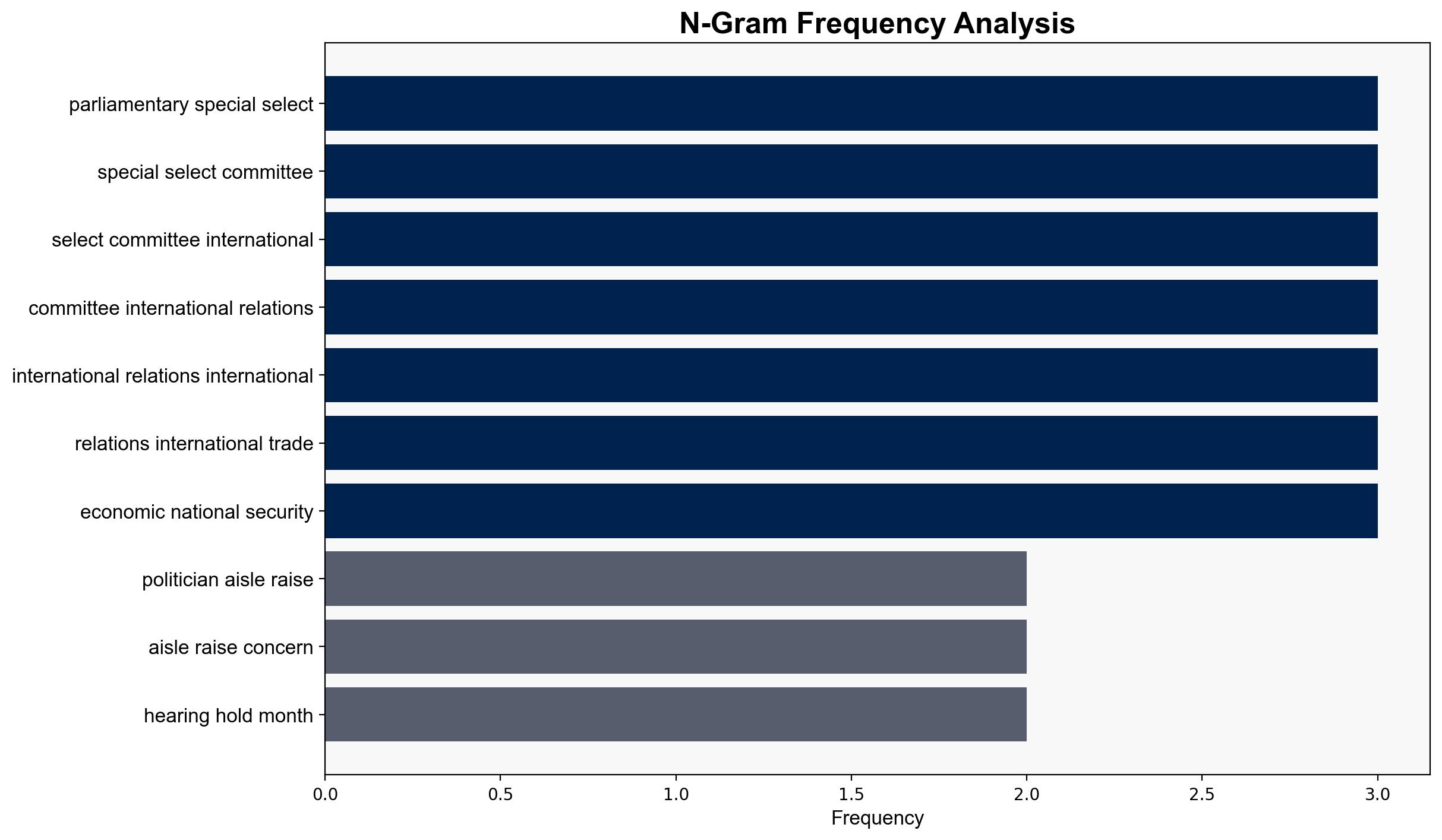Malaysia minister defends trade deal with US amid claims it undermines economic sovereignty – CNA
Published on: 2025-10-29
Intelligence Report: Malaysia minister defends trade deal with US amid claims it undermines economic sovereignty – CNA
1. BLUF (Bottom Line Up Front)
The most supported hypothesis is that the trade deal between Malaysia and the US is strategically beneficial for Malaysia, despite concerns over economic sovereignty. This conclusion is drawn from structured analysis, indicating that the deal’s provisions are designed to enhance Malaysia’s economic position without significantly compromising its autonomy. Confidence level: Moderate. Recommended action: Malaysia should continue to clarify the terms of the agreement to its domestic stakeholders to mitigate political backlash and ensure alignment with national interests.
2. Competing Hypotheses
1. **Hypothesis A**: The trade deal with the US enhances Malaysia’s economic growth and international standing without significantly compromising its economic sovereignty.
– **Supporting Evidence**: The agreement provides preferential market access and is described as extraordinarily beneficial. The Malaysian minister emphasizes that the deal does not obligate Malaysia to emulate US sanctions or trade restrictions.
2. **Hypothesis B**: The trade deal undermines Malaysia’s economic sovereignty by obligating it to align with US trade sanctions and regulations, potentially limiting its policy independence.
– **Supporting Evidence**: Opposition figures argue that the deal requires Malaysia to follow US-imposed rules, potentially compromising its economic autonomy and ability to act in its own interest.
3. Key Assumptions and Red Flags
– **Assumptions**:
– Hypothesis A assumes that the provisions of the trade deal are flexible enough to allow Malaysia to maintain its policy independence.
– Hypothesis B assumes that the alignment with US trade policies is mandatory and restrictive.
– **Red Flags**:
– Lack of detailed public disclosure of the trade deal’s terms, leading to speculation and political controversy.
– Potential cognitive bias in interpreting the deal based on political affiliations or economic interests.
4. Implications and Strategic Risks
– **Economic Risks**: Potential backlash from domestic industries fearing increased competition or regulatory changes.
– **Geopolitical Risks**: Strained relations with other ASEAN countries or China if perceived as aligning too closely with US interests.
– **Psychological Risks**: Public perception of loss of sovereignty could lead to political instability or reduced trust in government.
5. Recommendations and Outlook
- Conduct a transparent review of the trade deal’s terms and communicate the benefits and safeguards to the public.
- Engage with ASEAN partners to ensure regional alignment and mitigate geopolitical risks.
- Scenario-based Projections:
– **Best Case**: Enhanced economic growth and international standing with minimal political backlash.
– **Worst Case**: Significant political unrest and economic disruption due to perceived loss of sovereignty.
– **Most Likely**: Moderate economic benefits with ongoing domestic political debate.
6. Key Individuals and Entities
– Tengku Zafrul Abdul Aziz
– Azmin Ali
– Hassan Abdul Karim
– Teng Chang Kim
– Edgard Kagan
7. Thematic Tags
national security threats, economic policy, regional focus, international trade




